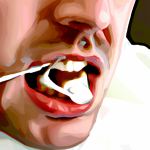Erectile dysfunction is a common condition that affects millions of men worldwide. It can have a profound impact on a man’s self-esteem, relationships, and overall quality of life. However, with the right understanding, diagnosis, and treatment, this condition can be effectively managed. In this article, we will explore the various aspects of erectile dysfunction, including its causes, symptoms, and diagnosis. We will also delve into the different treatment options available, including medications, therapies, and lifestyle changes. Additionally, we will provide expert insights on managing erectile dysfunction, offering tips, support, and prevention strategies to help individuals regain control over their sexual health. Whether you are someone personally dealing with erectile dysfunction or seeking information to support a loved one, this article aims to provide comprehensive guidance on this prevalent issue.
1. Understanding Erectile Dysfunction: Causes, Symptoms, and Diagnosis
Erectile dysfunction (ED) is a condition that affects a large number of men worldwide. It refers to the inability to achieve or maintain an erection firm enough for sexual intercourse. While occasional difficulties in getting or sustaining an erection are common and usually not a cause for concern, persistent or recurrent issues may indicate an underlying health problem that requires attention.
Understanding the causes, symptoms, and diagnosis of erectile dysfunction is crucial in order to address this condition effectively. There are various factors that can contribute to the development of ED, including both physical and psychological causes. Physical causes may include cardiovascular diseases, diabetes, obesity, hormonal imbalances, neurological disorders, and certain medications. On the other hand, psychological causes can involve stress, anxiety, depression, relationship problems, and performance anxiety.
The symptoms of erectile dysfunction go beyond the inability to achieve an erection. Men with ED may also experience reduced sexual desire, difficulty achieving orgasm, and a decrease in the firmness of their erections. These symptoms can significantly impact a man’s self-esteem, intimate relationships, and overall quality of life.
Diagnosing erectile dysfunction typically involves a comprehensive assessment of medical history, a physical examination, and possibly some additional tests. A healthcare professional will inquire about the patient’s sexual history, overall health, and any underlying conditions that may contribute to ED. A physical examination may include checking for signs of hormonal disorders, cardiovascular issues, or neurological problems. In some cases, blood tests, urine analysis, ultrasound, or a psychological evaluation may be necessary to determine the specific cause of the condition.
It is important for individuals experiencing erectile dysfunction to seek medical help as early as possible. Not only can early diagnosis and treatment improve sexual function, but they can also potentially detect underlying health conditions that may require attention. Treatment options for ED vary depending on the underlying cause and may include lifestyle changes, medications, psychological counseling, or a combination of these approaches.
In conclusion, erectile dysfunction is a common condition that can significantly impact a man’s sexual and emotional well-being. Understanding the causes, symptoms, and diagnosis of ED
2. Effective Treatment Options for Erectile Dysfunction: Medications, Therapies, and Lifestyle Changes
When it comes to treating erectile dysfunction (ED), there are several effective options available that can help men regain their sexual confidence and improve their overall quality of life. From medications and therapies to lifestyle changes, there are various approaches that can address the underlying causes of ED and provide successful outcomes. Let’s explore some of the most commonly recommended treatment options for erectile dysfunction.
1. Medications:
One of the first-line treatments for ED includes oral medications such as sildenafil (Viagra), tadalafil (Cialis), and vardenafil (Levitra). These medications belong to a class of drugs called phosphodiesterase type 5 inhibitors (PDE5 inhibitors). They work by increasing blood flow to the penis, facilitating erections when sexual stimulation occurs. These medications have proven to be highly effective in a significant number of men with ED and are usually taken shortly before sexual activity.
2. Therapies:
In addition to medications, various therapies are available to treat erectile dysfunction. One such therapy is intracavernous injection therapy (ICI), where a medication called alprostadil is injected directly into the base of the penis. This method produces an erection within minutes and is particularly useful for men who cannot tolerate oral medications or do not respond well to them.
Another therapy option is vacuum erection devices (VEDs), which are mechanical devices that create a vacuum around the penis, drawing blood into the organ and helping to achieve an erection. VEDs are non-invasive and can be used in conjunction with other treatments.
3. Lifestyle Changes:
Making certain lifestyle modifications can also have a positive impact on erectile dysfunction. Regular exercise, maintaining a healthy weight, and managing conditions like high blood pressure, diabetes, or heart disease can significantly reduce the risk of ED. Incorporating a balanced diet, rich in fruits, vegetables, whole grains, and lean proteins, can also improve overall cardiovascular health and sexual function.
Furthermore, reducing stress and anxiety levels through relaxation techniques, counseling or therapy, and open communication with a partner can often alleviate psychological factors contributing to ED.
3. Expert Insights on Managing Erectile Dysfunction: Tips, Support, and Prevention Strategies
Expert Insights on Managing Erectile Dysfunction: Tips, Support, and Prevention Strategies
When it comes to managing erectile dysfunction (ED), seeking expert insights can provide valuable guidance and support. ED can significantly impact a person’s self-esteem, relationships, and overall quality of life, making it crucial to address the condition promptly and effectively.
1. Consult with a Healthcare Professional:
The first step in managing ED is to consult with a healthcare professional, preferably a urologist or a doctor specializing in sexual health. These experts can accurately diagnose the condition and determine its underlying causes. They will also assess your overall health, lifestyle, and any medications you might be taking to identify potential factors contributing to ED.
2. Treatment Options:
After a proper diagnosis, healthcare professionals can recommend appropriate treatment options tailored to your specific needs. The most common treatment approaches include:
– Oral Medications: Medications like Viagra, Cialis, and Levitra are often prescribed to increase blood flow to the penis, facilitating an erection. These medications are generally safe and effective, but they do require a prescription.
– Vacuum Constriction Devices: These devices create a vacuum that helps draw blood into the penis, resulting in an erection. They are non-invasive and can be used alongside other treatment methods.
– Penile Injections: Injections of medications directly into the penis are another option for treating ED. These medications help relax the blood vessels and improve blood flow.
– Hormone Therapy: In cases where hormonal imbalances contribute to ED, hormone replacement therapy may be recommended.
– Psychological Counseling: If psychological factors like stress, anxiety, or relationship issues are identified as contributing factors, counseling or therapy sessions may be suggested to address these underlying concerns.
3. Lifestyle Modifications:
In addition to medical treatments, making certain lifestyle modifications can play a vital role in managing ED. Experts recommend:
– Regular Exercise: Engaging in regular physical activity can improve blood circulation, reduce stress, and promote overall well-being, potentially improving erectile function.
– Healthy Diet: Consuming a balanced diet rich in fruits, vegetables, whole grains



